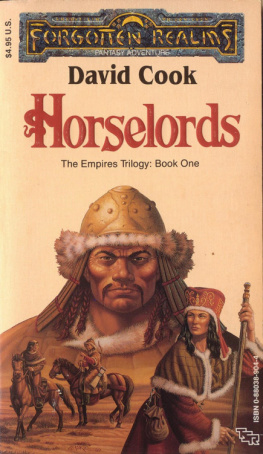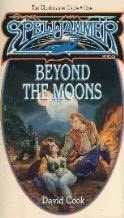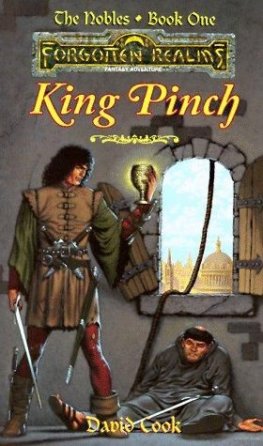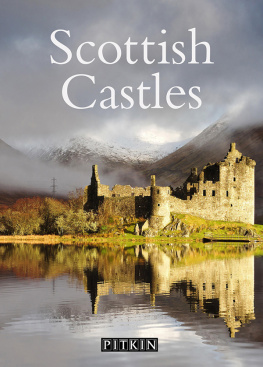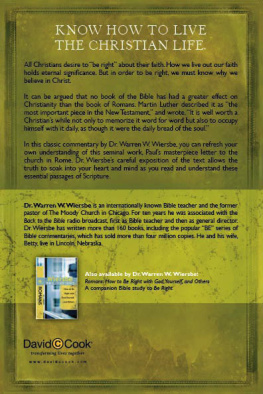David Cook - Horselords
Here you can read online David Cook - Horselords full text of the book (entire story) in english for free. Download pdf and epub, get meaning, cover and reviews about this ebook. genre: Romance novel. Description of the work, (preface) as well as reviews are available. Best literature library LitArk.com created for fans of good reading and offers a wide selection of genres:
Romance novel
Science fiction
Adventure
Detective
Science
History
Home and family
Prose
Art
Politics
Computer
Non-fiction
Religion
Business
Children
Humor
Choose a favorite category and find really read worthwhile books. Enjoy immersion in the world of imagination, feel the emotions of the characters or learn something new for yourself, make an fascinating discovery.

- Book:Horselords
- Author:
- Genre:
- Rating:3 / 5
- Favourites:Add to favourites
- Your mark:
- 60
- 1
- 2
- 3
- 4
- 5
Horselords: summary, description and annotation
We offer to read an annotation, description, summary or preface (depends on what the author of the book "Horselords" wrote himself). If you haven't found the necessary information about the book — write in the comments, we will try to find it.
Horselords — read online for free the complete book (whole text) full work
Below is the text of the book, divided by pages. System saving the place of the last page read, allows you to conveniently read the book "Horselords" online for free, without having to search again every time where you left off. Put a bookmark, and you can go to the page where you finished reading at any time.
Font size:
Interval:
Bookmark:
David Cook
Horselords
1
Quaraband was a city of tents. There were no permanent buildings, only domelike yurts of white and black spread out in the shallow bowl of a valley. The little round shelters were scattered in dense clumps, large and small, radiating out from the river that meandered across the valley from the south. The space between each yurt was cluttered with heavy, wooden-wheeled carts, ox yokes, racks of drying meat, hobbled horses, and camels. Here and there were wicker corrals for horses and sheep. Thin trails of smoke drifted from the cooking fires between the yurts. Farther out were herds of horses, cattle, and sheep grazing on the greening grass of the spring steppe.
The stubby grass broke through the pitted crust of old snow that still dotted the plain. White snow, green grass, and brown dirt covered the flat ground in broken patches, stretching as far as one could see. There were no trees, only gently rolling hillocks that rippled to the horizon. Dark scars from old gullies made jagged cuts across the barren land. Small clumps of bright blue and pink, the blooms of early crocus and dwarf lily, struggled against the cold to bring the first signs of spring to the land.
Chanar Ong Kho, a general of the Tuigan, seemed to glisten as sunlight played off the burnished metal scales of his armor. The light emphasized the luster of Chanar's thick braids and the thin sheen of sweat on the shaven patch at the top of his head. The sword at his side, its scabbard set with sapphires and garnets, swung in rhythm to his mare's swaying steps, scratching out a beat as it scraped against the general's metal leggings.
Saddle leather creaked as Chanar looked back to see if his companion was impressed. The man, a gaunt rider on a black mare, lurched along, parallel to a long, winding file of mounted soldiers-a small part of the ten thousand men under General Chanar's command. The companion wore what were once bright orange robes, though they were now travel-stained and worn. His head was shaven, and around his neck hung several strings of beads, each ending in a small prayer case of silver filigree. The priest rode stiffly, bouncing with every jolt, not with the natural grace of his fellow horseman. Chanar waited with bemused distaste as the priest pulled alongside.
"Tonight, Koja of the Khazari, you'll sleep in the tents of the Tuigan," Chanar announced, as he leaned forward to stroke his mare's neck. "Even though it's only been a few nights under the sky."
"Three weeks is more than a few nights," Koja observed. The priest spoke haltingly, with a musical inflection, ill-suited to the guttural twists of the Tuigan tongue. It was a language clearly different from his own. "Even you, honorable general, must welcome a night in warmer surroundings."
"Warm or cold, Khazari, it makes no difference to me. The Blue Wolf gave birth to our ancestors in the bitter cold of winter. My home is where I stand. Learn that if you mean to stay with us," General Chanar answered. Snapping the flank of the dapple mare with his knout, the general urged his horse into a gallop toward Quaraband, leaving the foreign priest behind.
Koja let out an exasperated sigh as he watched the horse-warrior gallop ahead. Once again Koja had to put up with the arrogance of the Tuigan general. The priest was saddle-stiff, dust-caked, and sun-scorched after three weeks of constant riding. The Khazari had traveled with the general and ten thousand Tuigan warriors through forests, over mountains, and finally across the dry and empty steppe to reach the great capital of the Tuigan people. He had left the comforts of civilization far behind.
Now, the capital of these mysterious warriors, men who bedeviled the valuable caravan trade, lay ahead. This khahan, emperor of the Tuigan, could wait a few more minutes while he looked their city over.
It was primitive, rustic-and it took Koja's breath away. There wasn't a single stone building in Quaraband. The little tents-yurts-were dirty felt mounds, but the sheer number of them was awe-inspiring. There were thousands of the yurts set up upon the plain. Quaraband covered the valley floor, a mile or more in each direction. A gray smudge of smoke hung over the tents, the residue from hundreds of fires. It had an acrid tang that came from burning dung. This unpleasant fuel was a necessity, since there was precious little else to burn on the treeless steppe.
A cloud of dust swirled up in front of Koja, partially obscuring his view of the city. The line of troopers snaked past; the sound of snorting horses, grumbled curses, and creaking leather suddenly reminded the priest of where he was. General Chanar was well ahead, trotting toward Quaraband. Koja awkwardly spurred his own horse forward, hurrying to catch up.
Just at the outskirts of the tent city, the priest rejoined General Chanar. The warlord barely noticed as the dallying priest came apace. Instead, the general turned back to survey the dispositions of his men. The ten thousand riders were already breaking into smaller groups, directed by the yurtchis, the officers responsible for laying out the camp. Satisfied that his men were being taken care of, Chanar turned back to where Koja sat on his horse.
"Come with me. I must present you to Yamun Khahan," Chanar ordered. He spit on the ground, clearing the dust from his throat, then tapped his horse forward. Koja followed.
As they passed through the yurts, Koja studied them closely. The round tents were made from thick felt pounded into rugs and stretched over a wooden frame. Each doorway was covered with a loose rug that could be pulled aside to let in fresh air and light. The roofs bulged at the very top, where a smoke hole provided a little ventilation. Judging by the dirty exteriors, Koja doubted the yurts were bright and cheery inside. As they passed one yurt whose door was open, Koja caught the thick odors of sweat, grease, and smoke issuing from the inside.
A small troop of riders, rough-looking men with butter-colored skin, approached the priest and the general. The riders wore identical black robes and pointed, fur-trimmed caps topped with long red tassels. Each man carried a curved saber at his side. "Yamun Khahan sends these men to escort the valiant Chanar Ong Kho to the khahan's home. He asks Chanar to share drinks with him," hailed the lead rider as the men approached. As he spoke, the man eyed Koja curiously.
Chanar nodded in acceptance, then motioned toward the priest. "Tell the khahan that I've brought an ambassador of the Khazari along from Semphar." At the command of the lead rider, one of the escort galloped away with the message.
The group continued in silence. As they rode, women peered shyly from behind tent flaps and dirty, bare-legged children ventured out to see the stranger riding by. The riders skirted the cooking fires, where pots bubbled, filling the air with the strong odor of boiled mutton.
Soon they reached a palisade of simple wooden stakes. The fence was five feet high, and ringed the base of a low hill that stood alongside the river. Beyond the fence Koja saw five large yurts, bigger than any he had passed. The largest yurt, dark black, occupied the top of the hill. The others, clustered around it, were smaller and powdered white with chalk. Primitive figures formed a printed band around the top of each yurt.
"I've come to see Yamun Khahan, my anda," General Chanar announced formally to the black-robed guard at the entrance. Koja noted the curious phrase Chanar used, which apparently denoted some close bond between the general and the khahan.
The guard hurriedly pulled aside the simple gate and allowed the riders to pass through. Gray-robed servants ran forward and held the horses while Chanar and Koja dismounted. The general carefully straightened his armor, tugging at the hems of his grease-and sweat-soaked silk undershirt. Satisfied, Chanar turned to the priest and declared flatly, "You'll stay here until I send for you." Sharply he turned and strode up the small hill toward the large central yurt.
Font size:
Interval:
Bookmark:
Similar books «Horselords»
Look at similar books to Horselords. We have selected literature similar in name and meaning in the hope of providing readers with more options to find new, interesting, not yet read works.
Discussion, reviews of the book Horselords and just readers' own opinions. Leave your comments, write what you think about the work, its meaning or the main characters. Specify what exactly you liked and what you didn't like, and why you think so.

